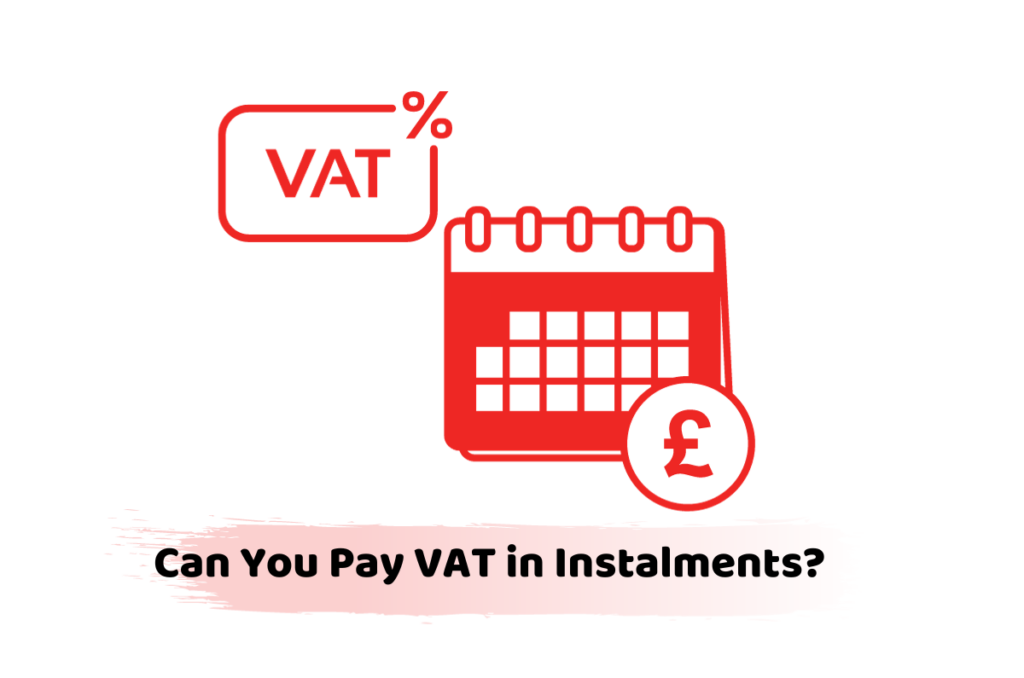Let’s dive into the topic of whether can you pay VAT in instalments. It’s a common question that many businesses have, and I’m here to help shed some light on it. The ability to pay VAT in instalments depends on the specific regulations and guidelines set by the tax authority in your country.
Some countries may offer this option, allowing businesses to spread out their VAT payments over some time. However, it’s important to note that the availability of VAT instalment plans and the specific requirements can vary. If you’re interested in learning more about this, the discussion will provide you with some insights and guidance.
Are you looking for reliable accountants in London, contact us!
Can you pay VAT in Instalments?
The option to pay VAT in instalments is available for businesses in certain circumstances. If a business is facing financial difficulties, it may be able to negotiate a Time to Pay arrangement with HM Revenue and Customs (HMRC).
It’s important to note that these options are subject to specific eligibility criteria and approval from HMRC. If you’re considering paying VAT in instalments, it’s advisable to seek professional advice from an accountant or contact HMRC directly to understand the available options based on your specific circumstances.
How to Avoid Late HMRC Payment Charges?
When it comes to avoiding late HMRC payment charges, there are a few key steps you can take. First and foremost, it’s crucial to stay organised and keep track of your tax obligations. Make sure you are aware of the deadlines for submitting your tax returns and paying any taxes owed.
One effective way to avoid late payment charges is to set up direct debits or standing orders with HMRC. This allows you to automate your tax payments, ensuring they are made on time and reducing the risk of forgetting or missing deadlines. By staying on top of your finances, you can anticipate any potential shortfalls and plan accordingly to ensure you have enough funds to meet your tax obligations.
Lastly, seeking professional advice from an accountant or tax advisor can be incredibly helpful in ensuring you meet your tax obligations on time and avoid any late payment charges. They can provide guidance tailored to your specific circumstances and help you navigate the complexities of the UK tax system. Staying organised, setting up automated payments, regularly reviewing your finances, and seeking professional advice are all effective strategies to avoid late HMRC payment charges.
What Happens When You Make the Time To Pay Application?
The specific process and requirements for making a Time to Pay application can vary depending on the tax authority in your country. The tax authority will review your application and consider factors such as your ability to pay, any outstanding tax liabilities, and the impact on your cash flow. It’s important to follow the guidelines provided by the tax authority and make timely payments to avoid any penalties or interest charges.
How Much Can You Afford to Make in Instalments?
It’s advisable to review your financial records and projections to get a clear understanding of your income and expenses. This will help you assess how much you can comfortably allocate towards VAT payments without negatively impacting your business’s financial stability. It’s crucial to ensure that your VAT payments are manageable and align with your business’s financial capabilities.
What is the Time to Pay Arrangement?
HMRC assesses each case individually and considers factors such as the amount owed, the reasons for the payment difficulties, and the ability to pay. If you’re considering a Time to Pay arrangement, it’s best to reach out to HMRC directly to discuss your specific situation.
What are the Common Requirements for a Time to Pay Application?
The common requirements for a Time to Pay application can vary depending on the tax authority and the specific circumstances. However, there are a few common factors that are often considered when reviewing these applications.
These may include providing details about your financial situation, such as your income, expenses, and assets. It’s important to demonstrate that you are unable to pay the full VAT amount in one go and that a payment plan is necessary. The tax authority will evaluate your application based on these factors to determine if a Time to Pay arrangement is appropriate.
Does your Company Qualify for a Time To Pay Arrangement?
To determine if your company qualifies for a Time to Pay arrangement, there are a few factors that HMRC considers. They typically assess your company’s financial situation, including your ability to pay, the amount owed, and the reasons behind the payment difficulties. Remember, each case is unique, so it’s essential to communicate openly with HMRC and provide them with all the necessary information.
The Bottom Line
To conclude, the question of whether can you pay VAT in instalments depends on the specific regulations and guidelines set by the tax authority in your country. While some countries may offer this option, it’s crucial to reach out to the tax authority or consult with a tax professional to get accurate and up-to-date information.
At Accotax, we provide you with seasoned accountants who comply with UK accounting standards and tax regulations to avoid penalties. Click here to get an instant quote!
Disclaimer: All the information provided in this article, including all the texts and graphics, is general in nature. It does not intend to disregard any of the professional advice.





















































